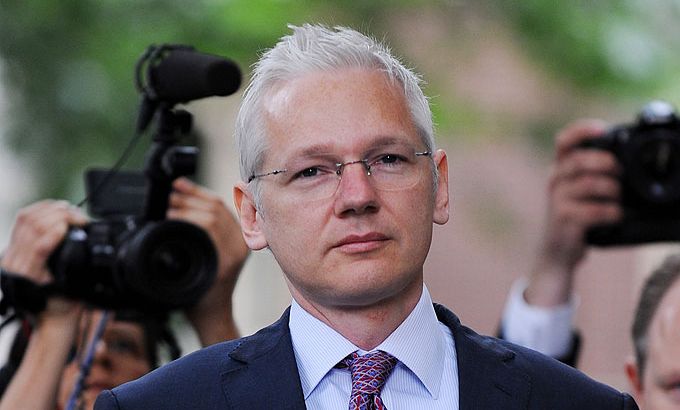WikiLeaks criticised over uncensored cables
Founder of WikiLeaks could face prosecution in Australia after publishing unredacted US diplomatic papers.

Julian Assange, the founder of Wikileaks, could face prosecution in Australia after publishing more than 250,000 unredacted US diplomatic papers.
Robert McClelland, Australia’s Attorney-General said late on Friday he was concerned that the group had discontinued its practice of deleting identifying features where he said the safety of individuals or national security could be put at risk.
Keep reading
list of 4 itemsCould shipping containers be the answer to Ghana’s housing crisis?
Are Chinese electric vehicles taking over the world?
First pig kidney in a human: Is this the future of transplants?
“It appears this hasn’t occurred with documents that have been distributed across the internet this week and this is extremely concerning,” he said.
McClelland said he had been advised that many of the new batch of documents contained identifying information, including at least one cable in which an agent with Australia’s spy agency ASIO is purported to have been identified.
“ASIO and other government agencies officers are working through the material to see the extent of the impact on Australian interests,” McClelland said in a statement released late Friday.
He added that it is a criminal offense in the country to publish information that could result in the identification of an intelligence officer.
Assange, an Australian national, is living under stringent bail conditions in Britain while he fights extradition to Sweden where he is wanted for questioning over allegations of sexual assault.
Former media partners have also strongly criticised WikiLeaks’ publication of the US diplomatic papers and said the move could put sources at risk.
In a joint statement, all five of WikiLeaks original media partners distanced themselves from the latest stash of documents dumped online on Friday.
“We deplore the decision of WikiLeaks to publish the unredacted state department cables, which may put sources at risk,” said a statement issued by the UK’s Guardian, the US’s New York Times, Germany’s Der Spiegel and Spain’s El Pais.
“Our previous dealings with WikiLeaks were on the clear basis that we would only publish cables which had been subjected to a thorough editing and clearance process.
“Today’s decision to publish by Julian Assange was his, and his alone.”
The website said on Friday that the more than 250,000 US diplomatic cables could now be accessed through an internet link without a password.
“RELEASE CABLEGATE2: 251,287 US embassy cables in searchable format,” said a message on WikiLeaks’ Twitter account.
The release came after WikiLeaks conducted an online poll on Thursday of its Twitter followers on whether to dump the cables online.
|
|
The website said it took the action after claiming the Guardian had leaked the passwords to the full cache of cables, a charge the British newspaper denies.
The Guardian broke off its co-operation with WikiLeaks in December over concerns about the security of sources.
Jonas Parello-Plesner of European council on foreign affairs told Al Jazeera: “Diplomacy lives in an age of transparency and that we have to take into account. WikiLeaks has brought that.
“But unfortunately, it’s been certainly the wrong country. The US is a democratic country, it has already accountability and oversight,” he said.
“It would have been much more interesting if the cables would be coming out of countries where there is lack of transparency.”
Fighting extradition
The US and human rights groups have warned that releasing unredacted cables containing the names of people who spoke in confidence to US diplomats could put the lives of sources in danger.
WikiLeaks infuriated Washington last week when it released 134,000 of the cables, with many showing the unprotected names of informants and other individuals who had spoken to US diplomats.
Al Jazeera’s Patty Culhane, reporting from Washington, said: “The latest cache of diplomatic cables has not been mentioned at all at the White House all this week.
“The US administration has condemned the release of any classified information but they did not confirm any of the contents.
“If the US government can prove a link between the latest release and any harm caused to any individual, then the charges could definitely become serious for Bradley Manning, the US soldier accused of leaking information to WikiLeaks.
“Also, the US justice department still has an open investigation against Julian Assange and it could make the investigation much more serious if the US government could prove it of harming any source.”
Last year, the release by WikiLeaks of the Iraq war logs followed by a huge cache of US diplomatic cables created ripples in diplomatic circles across the world.
Al Jazeera’s journalists want your help to find the best stories contained in the cables.
You can search for any subjects in the database and send us links to the most interesting documents through this form.
